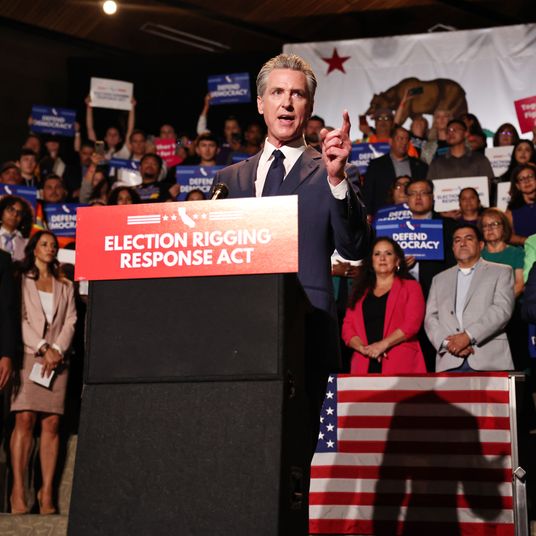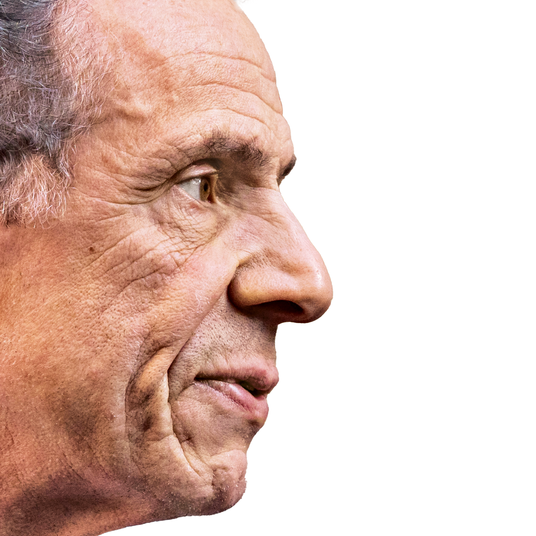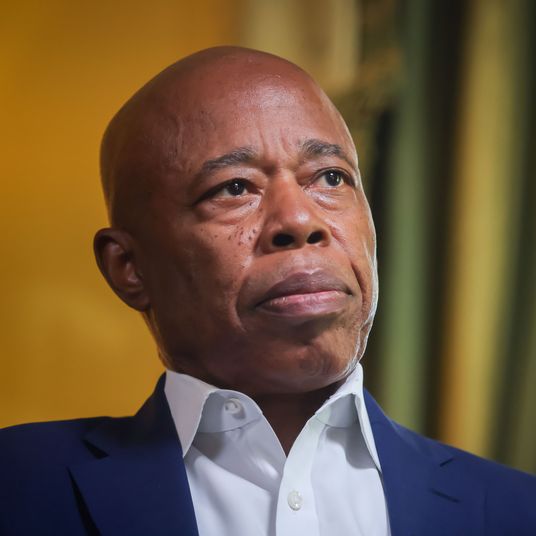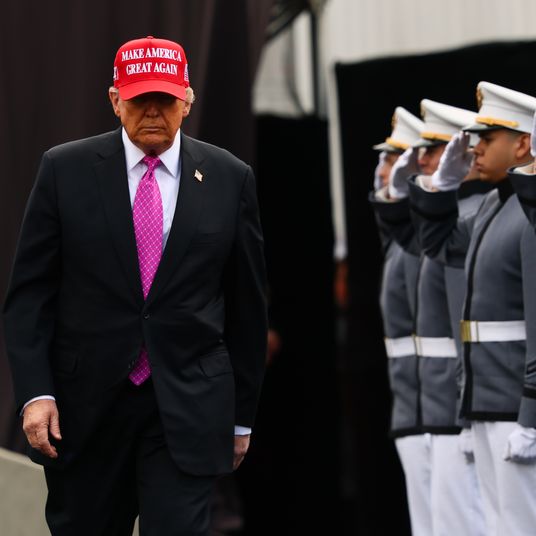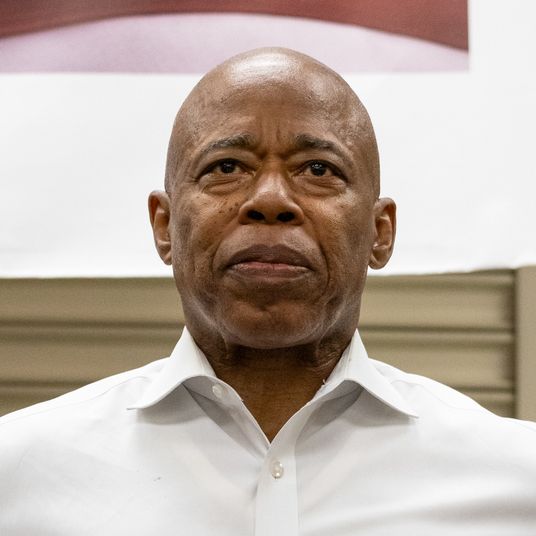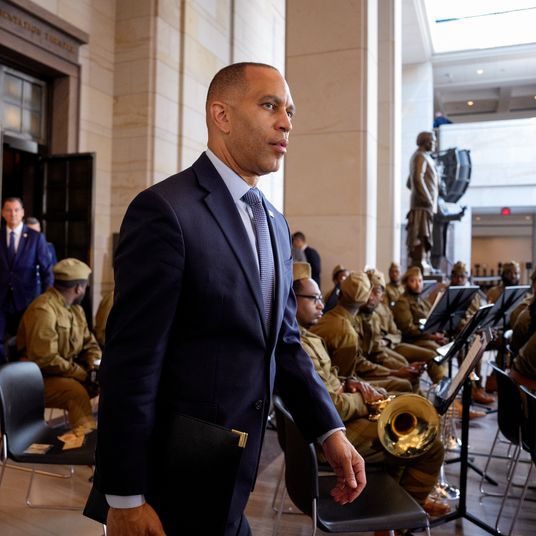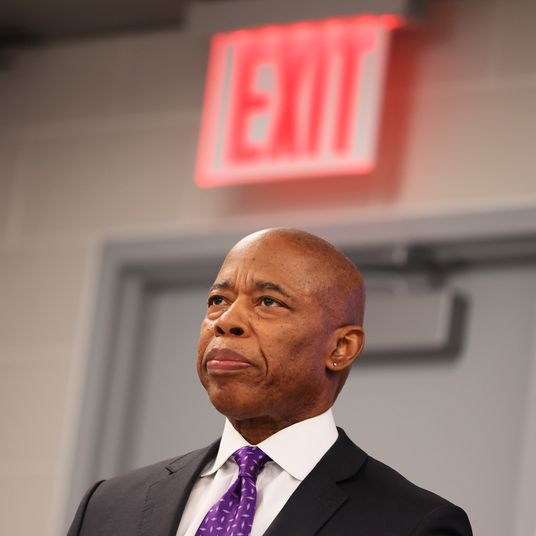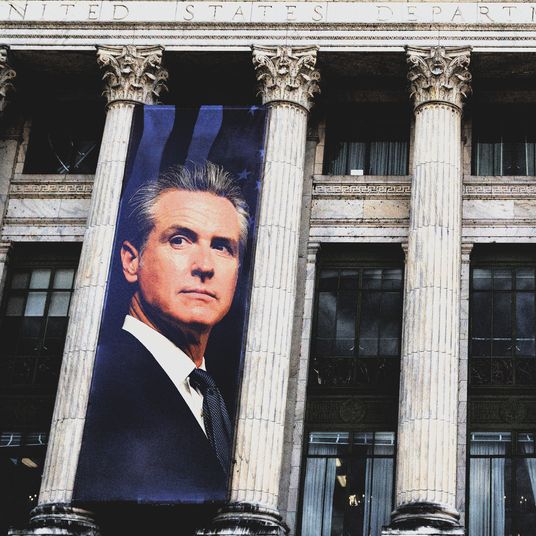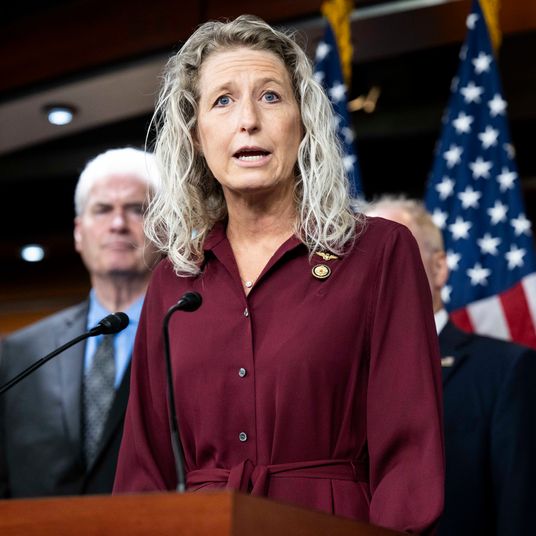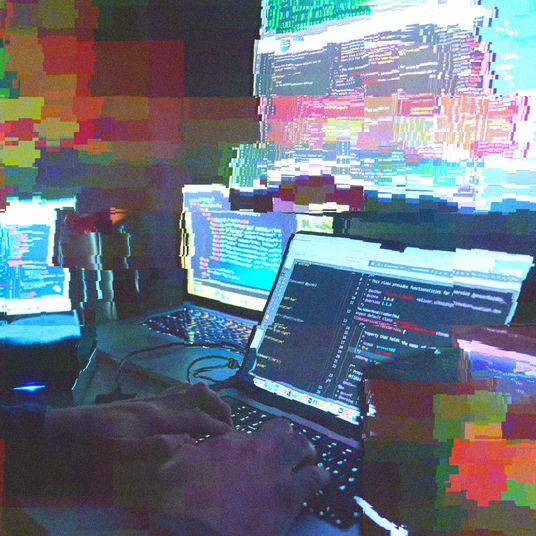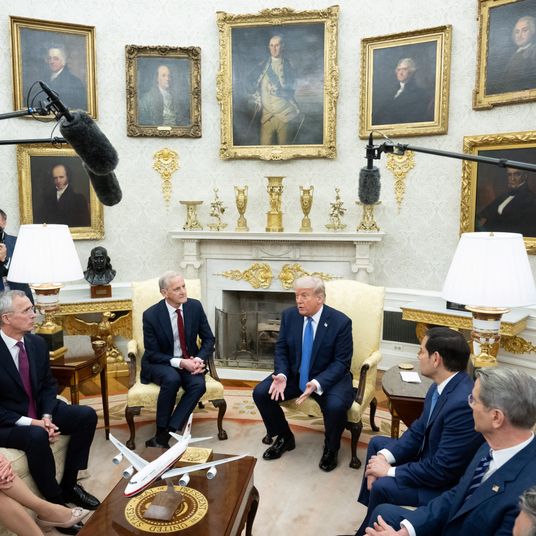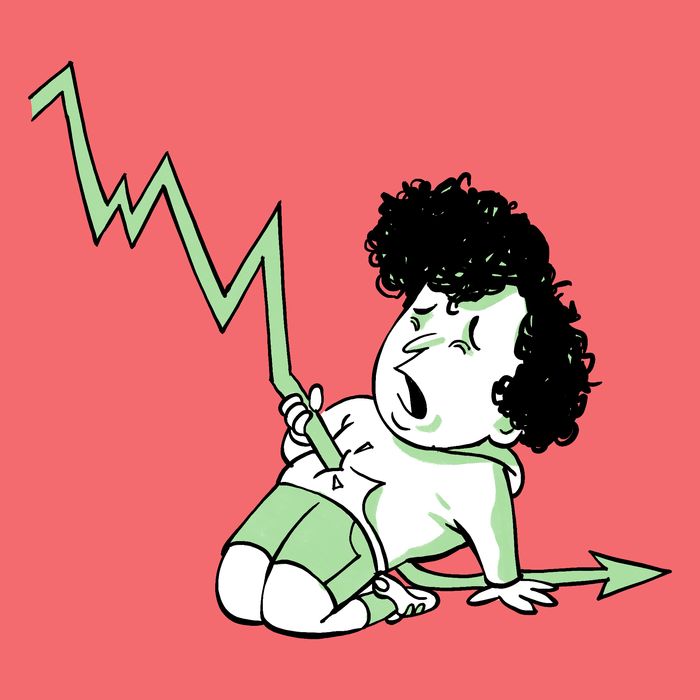
This article was featured in One Great Story, New York’s reading recommendation newsletter. Sign up here to get it nightly.
Two weeks ago, as New York Magazine was preparing its cover story on the implosion of Sam Bankman-Fried’s empire, the former cryptobillionaire called me. It was a little before 11 p.m. on a Thursday. Bankman-Fried said he’d agree to an interview, but that it would have to be temporarily off the record because he had “promised some people” he wouldn’t speak publicly “until a thing happens.” After that, we’d be free to publish. I said sure, and we spoke for about an hour.
But the mystery event never happened, and kept not happening, as I told Bankman-Fried in daily messages. “I realize I’m being a difficult pain in the ass right now and that I’m not in a position to be a pain in the ass and like, that’s shitty,” he said at one point. “And I’m sorry about that.” Finally, a different rationale emerged: Bankman-Fried had promised the New York Times he would not give any on-the-record interviews before appearing at its Dealbook conference Wednesday, as a condition of his (virtual) stage time. (On November 29, a YouTuber uploaded portions of her calls with Bankman-Fried; he says he never gave her permission, and she says she doesn’t consider herself a journalist.)
Now the embargo is up, and we can share Bankman-Fried’s comments from the night of November 17. Here’s a transcript, which has been edited for clarity:
Jen Wieczner: I’m trying to understand. You’ve said you see this as a mistake or an error and that maybe you can still fix the situation. But there was other people’s money — customers’ money — that you were in charge of and that you essentially gave to your hedge fund and traded with. Don’t you see that as reckless, negligent, and wrong?
Sam Bankman-Fried: I feel real fucking bad about what happened. It hurt a lot of customers, and it hurt a lot of employees, and my friends — and I want to do anything that I can to try to make that up as best that I can. But it’s — it’s bad. I fucked up. I did. In multiple ways, frankly. In terms of letting a margin position get too big, bigger than I thought it was. And not being thorough enough to catch that. I — on top of everything else — grossly underestimated what would happen in a negative-tail scenario, in terms of the run on the bank, in terms of the massive and swift decline in asset prices. I should have realized that that’s what the tail case would look like. I should have realized that because I’ve been in finance for a while and I am aware that correlations go way up during extreme scenarios.
We’re talking about $10 billion that you seemed to just lose track of. What did you think was happening with the money?
We should have had way better accounting in place. We should have had way better controls in place. There are, I guess, two pieces. The first is that just in general, we should not have allowed a margin position to get that big. It was too big. And it was too big, it was too big, given the liquidity of the collateral. There are a lot of things that could have prevented that — you know, the right views and tools for admins; having the right, you know, accounting systems in place; having a few different people checking over, you know, the policies, especially with respect to big positions or big accounts. All of those would have helped sanity-check things.
The second thing is that on top of all of that, there is a historical accounting artifact that came from a time back when FTX didn’t have bank accounts — because it couldn’t get bank accounts — which basically resulted in a stub account that was hard to find but that built up a very substantial, effectively very substantial, dollar debt. The effective position was billions of dollars bigger than it appeared to be.
The decision to dip into customer funds — how does that decision get made?
So FTX is a margin exchange. [Ed.’s note: A margin trade is made with borrowed money.] A bunch of users have margin positions on FTX, whether it’s through futures or through deliverables. In general, those positions are supposed to be positions such that they could be closed down by the platform if they needed to be: Buy back all the shorts, buy back all the deliverables, in order to meet demand or in response to asset price movements. Like, that is the theory. And that was true for most of them. It’s true for almost all of them. Alameda’s was too big. It was way too big.
Alameda effectively — and you can call it what you want — had a margin position on, and that margin position was not going to be closable in a liquid way in order to make good on its obligations. And, you know, that position built over time. It wasn’t a single, discrete moment. Like other accounts, it was trading, buying, selling, depositing, withdrawing — positions were dynamically changing. That position, in retrospect, seems like it got substantially bigger in the middle of the year.
That made it go from a somewhat risky position to a position that was way too big to be manageable during a liquidity crisis, and that it would be seriously endangering the ability to deliver customer funds.
You’re saying Alameda took a hit on luna, but you just didn’t realize it?
It took a hit, not on luna itself but at roughly the same time, as markets crashed in general. It was certainly in retrospect larger than we should have let it get to. We certainly should not have allowed that, and, you know, at the time, we probably knew enough to — I certainly would have wished that we were people who would have cut that off then. But on top of that, also, the position was way bigger than it looked because of the historical accounting artifact.
Okay, so you’re aware at some level that there is a hole. This is the part that I don’t understand, because at that point, you’re still offering to bail out the industry and buy other bankrupt companies. How could you possibly be doing that when you’ve also been hurt like everyone else during the downturn?
I wish we hadn’t. I will say, to the extent this matters, that was a different company doing that. FTX US was the company that was looking to do bailouts. The total expenditures were large but not huge. And they were well within the budget of FTX US. FTX US did not have any of these problems. It was to my knowledge fully funded and had in fact a bunch of extra cash on hand for situations like this. And so when I was doing that, it was well within the budget of FTX US and seemed like an appropriate thing to do. And I stupidly, I guess, was not focusing on the margin positions on FTX International.
It seems like at some point, you lose control of the budget. And you don’t know how much money you actually have?
At both FTX US and FTX International, I had a pretty good sense of how much money they had and what their financials were, and their financials, in some sense, were straightforward and exactly as they always were. The problem was that Alameda had gotten leveraged. And Alameda is not, like, a company that I monitor day-to-day. It’s not a company I run. It’s not a company I have run for the last couple years. And Alameda’s finances I was not deeply aware of. I was only surface-level aware of Alameda’s finances. Alameda had leverage, it had exposure, it had risk. But FTX International and FTX US themselves had fairly clean accounting — as long as there wasn’t a risk of a substantial default of one of their customers. But of course, that’s what happened.
Are you saying that a lot of these problems got out of control under Caroline Ellison — the Alameda CEO — and that you weren’t aware?
These problems are problems which I believe happened over the last year or so. And I haven’t been running Alameda during that year. I was not deeply aware of what was going on. I was not running it day-to-day, and I was focusing on FTX and its finances and budget and strategic aims.
Okay. So Alameda is potentially going to crash. You make a decision to use customer funds to pay that back? Everyone is saying that is fraud. How do you take that leap?
It’s not a leap that I consciously took. Again, Alameda ended up with a very large position on FTX that involved a very substantial U.S. dollar borrow that it was not going to be able to meet in a crisis scenario. And it’s not something that I should have allowed to happen. Accounting shouldn’t have let that happen — should not have made it hard to figure out what the size of that was. And separately, I should have been much more cautious and much more, you know, less trusting and more careful than I was.
But I wasn’t running Alameda. I wasn’t making decisions on the Alameda side in terms of, like, I wasn’t thinking about it in terms of, you know, borrowing assets or something like that. I was thinking about it in terms of — I wasn’t thinking about it at all nearly as much as I should have been. But in terms of, you know, occasionally glancing at the positions that the larger players had, to check the risk controls, to check that they were manageable positions on FTX.
I totally understand why you’re phrasing it that way. It’s not the way that that jibes with how I experienced it and with how I interfaced with it. Because I was thinking about this from the FTX risk perspective, rather than from the Alameda capital perspective.
How would you explain to customers what happened to their money?
A client on FTX put on a very large margin position. FTX fucked up in allowing that position to be put on and in underestimating, in fact, the size of the position itself. That margin position blew out during the extreme events over the last few weeks. And that meant that that account ended up underfunded and that that account ended up without the ability to close down its spread. And that means that while there are still large values of assets, that account frankly got margin called. And, like, that’s really bad. And like, I’m deeply sorry that that happened and like, really, really hate that I didn’t, like, that I didn’t stop that from happening. That I let that happen and grow and didn’t pay much attention, didn’t do my duty to oversee that, nearly as well as I should have, and, like, that hurt a lot of people. And I feel really bad about that. And it was a large fuckup of risk analysis and risk attention and, you know, it was with an account that was given too much trust, and not enough skepticism.
Bridge that gap for me. There’s an account that blows out. But the customers’ money doesn’t walk itself over there and start trading with it, right?
I hear you. I totally hear what you’re saying. And like, it’s in the end, it’s just words and like your, your framing of it is — I don’t think it’s wrong, necessarily. It’s not how I saw it.
By all reports, it was customers’ money that was used to pay back Alameda’s obligations.
That was like months earlier, right. The margin position grew over the months before that. And so, you know, by October, that position was, roughly speaking, in place.
The Wall Street Journal reported that Caroline Ellison told staff that customer funds from FTX were ported over to Alameda to fix the problem.
I can’t give confidence on that. Because, I mean, it’s not my quote. I wasn’t running Alameda at the time, and I’m just inferring what that meant. But what I believe that was referring to was months earlier, during the market crash in the spring. That led to an initial decrease in the value of Alameda’s collateral. And I don’t know the details of exactly what happened there, but that led to its margin position on FTX increasing substantially in size and the collateral value decreasing. That made it from a massively overcollateralized, very safe position, to a moderately overcollateralized, moderately risky position on FTX. And, then, the shock a few weeks ago took it from that moderately risky position to an extremely risky position.
These were deposits that people trusted FTX with and then they just weren’t there. Did you think that they were there and they weren’t? Did you lose track of that? We’re talking about $10 billion.
I hear you. Two things, first, the monitor that I was looking at was net customer balances, which includes the short positions as well as the long positions. And so it added up but only because there were large short positions, in addition to large long positions, and Alameda had a very large short USD position. And that like was something that I should have had a flag for and didn’t. The other piece of it is because of the accounting fuckup, the position was billions of dollars larger than it appeared to be.
Couldn’t you have hired an accountant?
We should have. We should have had multiple people thinking through this. That should have happened. It would have helped a lot.
And a board?
Well, we had lots of boards. I mean we have lots of entities, regulated in lots of jurisdictions — we had lots of boards of directors of various entities, including the advisory board with a number of people on it that met every couple months and lots of other boards that met more frequently. I think the problem is that the boards didn’t generally focus as much on the— it was more of a high-level focus than a low-level focus.
There’s a period of months when problems are building up. But you’re still advertising and buying companies and nobody’s the wiser. Why keep it secret? Why not get an auditor, get an accountant, get somebody to help fix this before it’s too late?
Well, in retrospect, I should have. Absolutely. We should have sat down and had a long discussion, done a thorough review, brought in some people and tried to figure out how to handle it. That would have been the right thing to do.
What was going on in your head? Did you think it was just going to go away?
I didn’t think it was as big as it was. And I also was distracted by a lot of other things. I was, among other things, distracted trying to get regulated in a very large number of jurisdictions at once. We kind of all were. It took up most of our energy over the last year and a half. I should have done fewer other things, even if that meant getting licensed in fewer places, and spent more time going over risk metrics, spent more time going over account balances, and spent more time, like, both getting the numbers right and then thinking much harder about how big the risk really was.
It sounds like you’re describing a degree of negligence. Are you concerned about your future? People are talking about things like prison.
I can’t comment on that. That’s not up for me to decide. All I can do is to try to do what I can to make things as right as possible going forward. There’s some time each day that I put aside for reflecting on what happened, and it’s not a happy time. But that’s how it is.
Every previous conversation that we’ve had, you’ve talked about ethics and how the industry can be more ethical and moral.
Yep, yep.
And that’s why nobody expected this from you. How do you square that? People are saying that FTX was just a sham or a scam. Is that what this was? And shame on us for believing you?
I don’t think so. I think FTX was exactly what it looked like for the most part. It was, I think, a business that for the most part was valuable and provided a good service and tried to do so while being a good actor. And, also, there is a huge problem and a huge fuckup and that wasn’t super-related to its normal course of operations.
It was a huge oversight with, you know, hugely bad consequences and hurt a lot of people, and I feel real bad about that. And it’s, I don’t know, it sucks. I’m sorry.
More on sam bankman-fried
- Sam Bankman-Fried Says He Hangs Out With Diddy Every Day
- The Effective Altruists’ Castle Is for Sale — and Has Become a Culture-War Meme
- Sam Bankman-Fried’s Final Trip to Court

